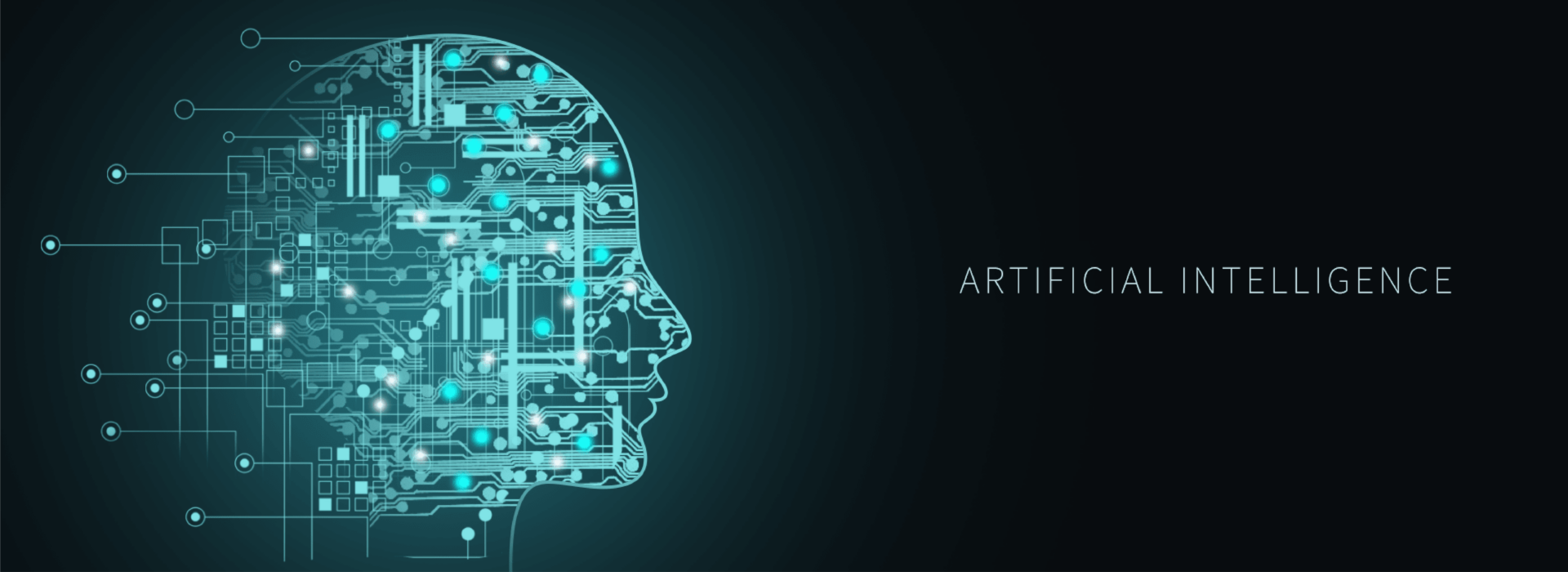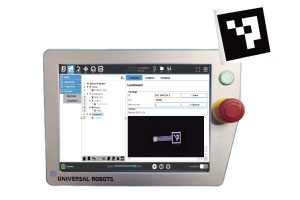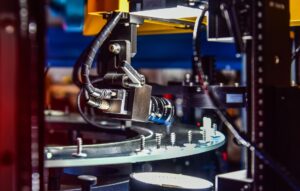4 Common Misconceptions About AI
Artificial Intelligence (AI) is revolutionizing many industries and the use of AI-powered systems in factories has become increasingly popular due to the numerous benefits it provides, which include improvements in efficiency, quality, safety, and cost reduction. Despite the benefits of AI, there are still some myths surrounding AI that persist, so in this article we aim to debunk four of the most common misconceptions about AI.
Myth 1: AI Will Replace Human Workers
One of the most common and widespread myths about AI is that it will replace human workers altogether. While it is true that AI can automate certain tasks and roles, AI can also augment human capabilities and free up workers to focus on more creative and strategic tasks. For instance, AI can help humans analyze and interpret complex data more quickly and accurately, leading to better decision-making. In addition, AI can help to increase productivity and efficiency by automating repetitive tasks, allowing workers to focus on more value-adding activities.
Ultimately, AI is a tool that can work alongside human workers to increase productivity and efficiency, and it is not intended to replace them entirely. In fact, by enabling humans to focus on higher-level tasks that require critical thinking and problem-solving skills, AI can help to create more fulfilling and satisfying work experiences.
Myth 2: AI Is Too Expensive For Most Companies
Another common myth surrounding AI is that it’s only for big companies with huge spending power. While AI technology was once a niche investment, AI adoption has become more mainstream in recent years. Now, many AI-powered systems are available as software-as-a-service (SaaS) solutions, which can be more affordable. SaaS solutions allow businesses to pay for only what they need and scale up or down as necessary, which makes it more accessible, especially for small and medium-sized businesses. As a result, AI is not just for large corporations; organizations of all sizes can benefit from AI technology.
Myth 3: AI Is Only Useful For Large Companies
AI is accessible and affordable for small and medium-sized companies, allowing them to compete more effectively in the marketplace. AI can be particularly beneficial for small and medium-sized companies that have limited resources and need to make the most of what they have. By leveraging AI-powered systems, organizations can streamline their operations, increase efficiency, and boost productivity, all while keeping costs down. One area where businesses can benefit greatly from AI is quality control. AI-powered systems can help manufacturers identify and address quality issues more quickly and accurately, saving both time and money in the long run.
For example, AI can be used to analyze production data to identify trends and patterns that may be indicative of quality issues. By catching these issues early, companies can avoid costly mistakes and ensure that their products meet customer expectations. Therefore, it’s important for businesses of all sizes to recognize the potential benefits of AI and explore how it can be integrated into their operations.
Myth 4: AI Is Difficult To Implement
Depending on the system, implementing an AI-powered system can be a complex process, but it is not impossible. In fact, there are many resources available to help businesses get started with AI, such as working with companies that offer AI implementation services. These companies specialize in helping businesses integrate AI into their existing processes and can provide guidance and support throughout the entire implementation process. Furthermore, some AI-powered systems are designed to be user-friendly and require minimal training or specialized knowledge to implement and operate.
While implementing AI may require some effort and resources, it is not an impossible task. With the help of AI implementation services and user-friendly AI systems, businesses of all sizes can benefit from the many advantages that AI has to offer.
Conclusion
As outlined above, AI offers numerous benefits to businesses of all sizes. By debunking these common misconceptions, we hope to encourage more businesses to explore the possibilities of AI and discover how it can help them succeed in today’s competitive marketplace. Remember that AI can automate routine, repetitive tasks and complement human capabilities to free up workers to focus on higher-level tasks, making AI a valuable tool for improving efficiency, quality, and safety across multiple industries.

Industrial AI FAQs
What is industrial AI?
Industrial AI refers to the use of artificial intelligence technologies in industrial settings such as manufacturing, logistics, and food production. The goal is to improve efficiency, productivity, safety, and other key performance indicators in these industries.
What are the benefits of using industrial AI?
Industrial AI offers several benefits, including improved efficiency, increased productivity, better quality control, reduced downtime, enhanced safety, and more accurate forecasting.
How does industrial AI work?
Industrial AI works by using machine learning algorithms and other AI technologies to analyze large volumes of data collected from sensors and other sources in industrial settings. The AI algorithms can then identify patterns and anomalies in the data, and provide insights and predictions that can help optimize operations and improve performance.
What are some examples of industrial AI applications?
Examples of industrial AI applications include predictive maintenance, supply chain optimization, quality control, anomaly detection, energy management, and predictive analytics.
How can industrial AI be integrated into existing systems?
Industrial AI can be integrated into existing systems through the use of specialized software and hardware designed for industrial applications. Many industrial AI solutions are designed to be compatible with existing systems, and can be customized to meet the specific needs of end users.
Is industrial AI expensive to implement?
The cost of implementing industrial AI can vary depending on the size and complexity of the organization and the specific AI solutions being used.
How can industrial AI improve safety in the workplace?
Industrial AI can improve safety in the workplace by analyzing data to identify potential safety hazards and provide early warning of impending safety issues. This can help companies take proactive measures to prevent accidents and injuries.
How can industrial AI help reduce downtime?
Industrial AI can help reduce downtime by predicting equipment failures before they occur, enabling companies to perform preventive maintenance and avoid unplanned downtime. AI can also help optimize maintenance schedules and improve equipment reliability.
How can industrial AI be used to improve supply chain management?
Industrial AI can be used to improve supply chain management by providing real-time visibility into inventory levels, demand patterns, and other key metrics. This can help companies optimize inventory levels, reduce waste, and improve delivery times.
Is it difficult to implement industrial AI?
Implementing industrial AI can be complex, but many AI solutions are designed to be user-friendly and require minimal training or specialized knowledge. Organizations can also seek the assistance of AI implementation services for guidance.



